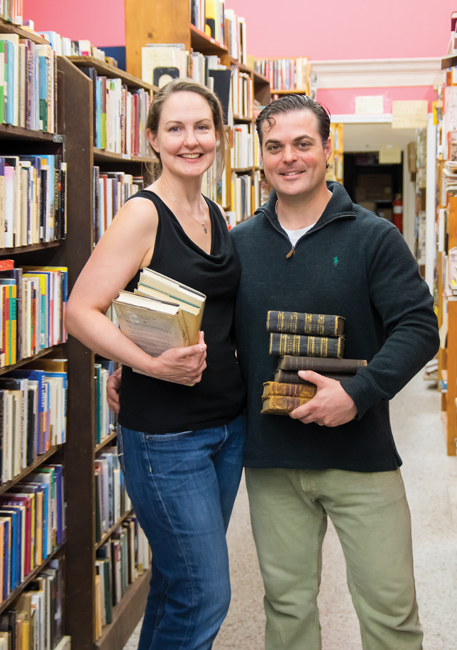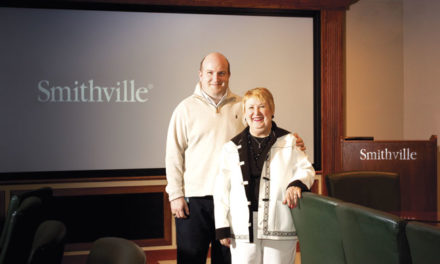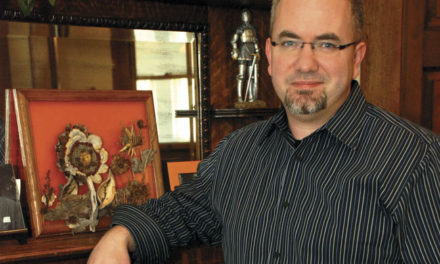
by JANET MANDELSTAM
Caveat Emptor, the used and rare bookstore on the downtown Square, celebrated its 50th anniversary this year, but it almost didn’t make it to the half-century mark.
Founded and operated for 45 years by Janis Starcs, the store was for sale five years ago. Potential buyers were scarce, and the store was on the verge of closing. Enter Eric and Catherine Brown.
“I’ve always been a bibliophile, and I revered Caveat Emptor as an institution,” says Eric. “The day I found out it was for sale, I said, ‘There is no way this great bookstore in Bloomington could go under.’” The Browns became the new owners in 2016. Eric handles acquisitions and Catherine manages operations.
When the pandemic hit last year, the store was in jeopardy again.
“We shut down, and we had to reinvent our business model overnight” he says. “Before March 2020, online sales were just 2% of our business.” When the Browns posted the store’s precarious situation on social media, “600 care package orders for books came in from all over the country,” he says.
For local customers, Brown hopped on his bicycle to deliver orders that had been placed online. “I put 1,000 miles on my bike running a courier service around Bloomington.” The store has been open with reduced hours since last fall.
For the anniversary celebration on June 4, Brown livestreamed an interview with Starcs on the history of Caveat Emptor. Commemorative merchandise was offered for sale at $19.71 to honor the year the store opened, and all books were half price. “We were mobbed,” Brown says.
Caveat Emptor has 40,000 used books in stock, including rare first editions, scholarly books in many fields, and foreign language books. “Not a lot of beach reads,” Brown says.
Caveat Emptor acquires its books in various ways. “Some people sell or donate books, some come from estates, and we trade for store credit.” Among recent acquisitions of note were a signed first edition of For Whom the Bell Tolls, which, Brown says, “Hemingway signed in Cuba,” and a book of Petrarch poetry that dates to 1515.
Of his role at Caveat Emptor, Brown says, “It’s a mission. I see myself as curator of the store. If books disappear, what we value as a society and as a culture will disappear, too.”










